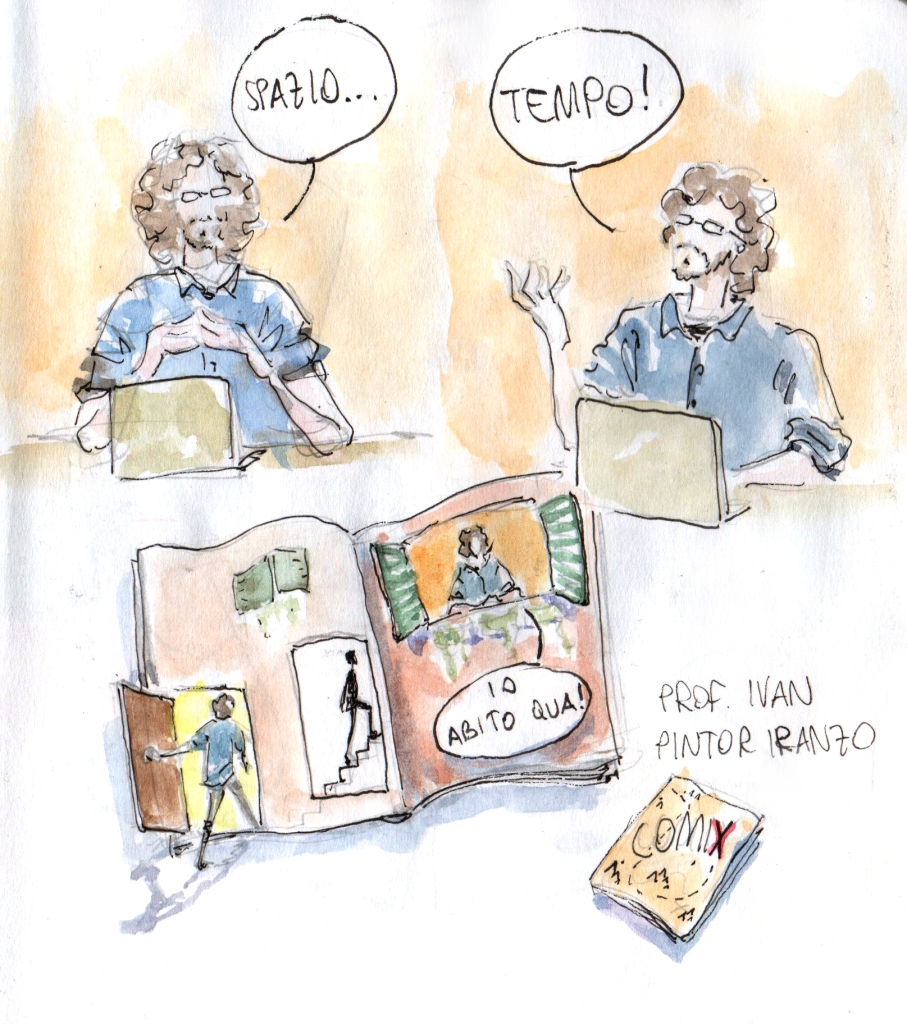
Comics Forum 2020: Pages of Whiteness
November 2020, Online
Conference Lead: Olivia Hicks
Call for Contributions
In White, Richard Dyer argues that race is something which is only applied to non-white people; and thus white people are allowed to speak from a non-racialised, normalised position of power.1 In Unstable Masks, Sean Guynes and Martin Lund state that whiteness is a set of malleable historical, geographical and cultural values, that is ‘one of the key historical formations of power, surveillance and control’ in the West.2 Drawing attention to whiteness is drawing attention to what is naturalised and/or normally invisible.
The title of this conference comes from Tracy D. Morgan’s essay ‘Pages of Whiteness’, which explores white supremacy in the erotic fantasies of the queer physical culture movement in the American post-war period.3 The essay title refers both to the white paper used to produce physical culture magazines, but also the overwhelming presence of white bodies within, and the suffocating racist fantasies which inform the rare appearances of Black or Latino models. The phrase suggests an intersection of identity, materiality and (comics) production. This essay is one of many exposing how whiteness shapes the media we create and consume. The idea of whiteness as a ‘norm’ and the backdrop against which all other identities are contrasted and controlled, filters into
every facet of the comics we read and study; from the over-abundance of white characters and storylines, the privileging of white editorial and creative voices, to the ‘whiteness’ of the comic’s pages, suggesting a white, blank default, to the inks which are used in production, which privilege white skin tones. As Zoe D. Smith notes in her essay ‘Four Color-ism’, ‘Brown skin in comics of this period fails in part because there’s too much ink. The layers of cyan, magenta, and yellow are unreliable and painfully noticeable. White skin, by contrast, is thoughtlessly stable.’4
Maintaining the status quo of Western society is a thoughtless action; challenging the structuring logic of our worlds is a task which requires engagement and action. This conference is calling for a critical examining of whiteness and the structuring systems of comics and comics scholarship. One could respond to this theme by exploring whiteness within comics and/or comics academia. One could also choose to examine those identities which are marginalised or excluded; exploring creators and characters with marginalised identities. This call also encourages work on the production and materiality of comics; submissions on colouring (which is an underappreciated part of comics production) and zine culture, where creators often deliberately choose colourful paper or a collage effect which disrupts the notion of the white page being the norm.
Some ways Pages of Whiteness could be interpreted are as follows:
- Whiteness and Comics
- Comics and Race
- Comics and Identity
- Comics and Activism/Protest
- Queering Comics
- Comics Production (including colouring)
- Zine Culture
- Colour and Comics
- Comics scholarship; new approaches to studying comics
- Comics Practice as research
- Digital “Page-less” Comics
Formats
Comics Forum 2020 will take place online. We invite contributors to submit proposals in the following formats, but we are open to other suggestions if speakers are in a position to offer them:
Pre-recorded videos: This may be a single speaker talk of 10-15 minutes, or a 20-minute conversation between two or more speakers. These can be followed by live Q&As either in a video call and/or via Twitter (please specify which you wish to use when you submit your proposal).
Live Events: These may be workshops, reading groups, demonstrations of practice or research methods etc. Events will be hosted on relevant openly-accessible platforms suitable for large-scale live video calls – if you would like to use a particular platform please specify this, otherwise make clear in your proposal what the format of your proposed event is so we can ensure we have access to a platform that will support it. Please note that time-zones mean that live events can be geographically exclusive, so if you can run your event in a way that includes some asynchronous content this will enable more people to participate.
Digital Zines: Zines on the conference theme can be submitted in PDF format for inclusion in the event via Issuu.
Proposals of up to 250 words in length for contributions in the formats detailed above are now being accepted at the following link: https://tiny.cc/comicsforum20. The deadline for submissions is the 1st of September 2020 and you will be notified of acceptance by or before the 14th of September 2020. Please include a short (100 word) biography with your proposal.
Comics Forum 2020 is part of the Thought Bubble Sequential Art Festival. Find out more about Thought Bubble at: https://www.thoughtbubblefestival.com/.
Note: The Comics Forum organising committee asked Olivia Hicks to be a co-organiser for the 2020 conference in 2019. In January 2020, Olivia proposed the call ‘Pages of Whiteness’ which as accepted by the team immediately. The call was an urgent call to action in comics scholarship in January, and recent events have only served to further highlight how necessary this work is.
1: Richard Dyer, White, (London: Routledge, 1997), p.2.
2: Sean Guynes and Martin Lund, ‘Introduction’ in: Unstable Masks: Whiteness and American Superhero Comics (Columbus: Ohio State University Press, 2019), p.2.
3: Tracy D. Morgan, ‘Pages of Whiteness: Race, Physique Magazines, and the Emergence of Gay Culture’ in Queer Studies: A Lesbian, Gay, Bisexual and Transgender Anthology, edited by Brett Beemyn and Mickey Eliason (New York and London: New York University Press, 1996), pp.280-297.
4: Zoe D. Smith, ‘4 Colorism, or, the Ashiness of it all’, Women Write About Comics (24 May 2019), <https://womenwriteaboutcomics.com/2019/05/4-colorism-or-the-ashiness-of-it-all/>



